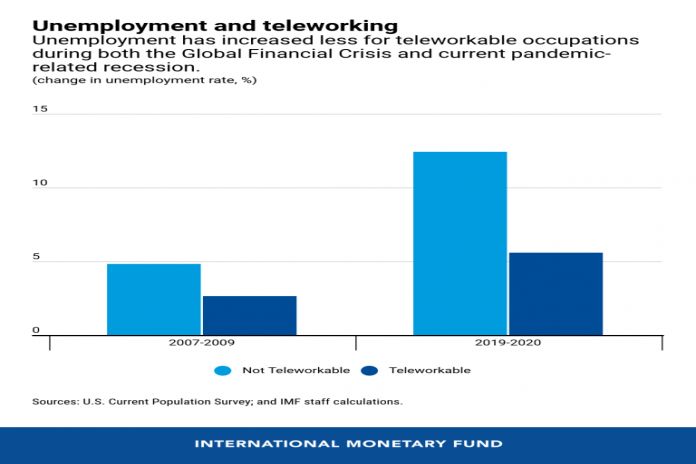There has been much discussion in recent months about how workers who transitioned to working from home—and those who were deemed “essential”—are less affected by the layoffs and job losses brought on by lockdowns than are workers in “social” jobs that require closer human interaction (e.g. restaurant workers). However, our new IMF staff research suggests that this does not tell the full story.

In particular, we find that while teleworkable jobs are indeed more secure than non-teleworkable occupations during the current pandemic-related recession, this pattern has also been observed during the global financial crisis of 2007–09—meaning that something more than pandemic-related restrictions is at play.
As the chart shows, unemployment has increased less for teleworkable occupations during both recessions. This pattern suggests that people in teleworkable occupations tend to keep their jobs not only because they satisfy the need for social distancing and other novel requirements of the current pandemic, but also because such people tend to be more highly-skilled and educated—and hence less vulnerable to recessions. The paper also finds that essential jobs have been less affected not only during the current recession but also during the global financial crisis. On the other hand, while social jobs have been severely affected during the current recession, they were indeed less affected during the global financial crisis.
Our research also confirms some interesting observations regarding the distributional aspects of recessions. It finds that young and low-skilled workers have always been harmed more in recessions, while women and Hispanics are more severely affected during the current recession. Women in particular are more likely to work in industries and occupations that are being affected more severely during today’s recession. During both recessions, low-income workers have suffered more than top-income earners.
![]()





